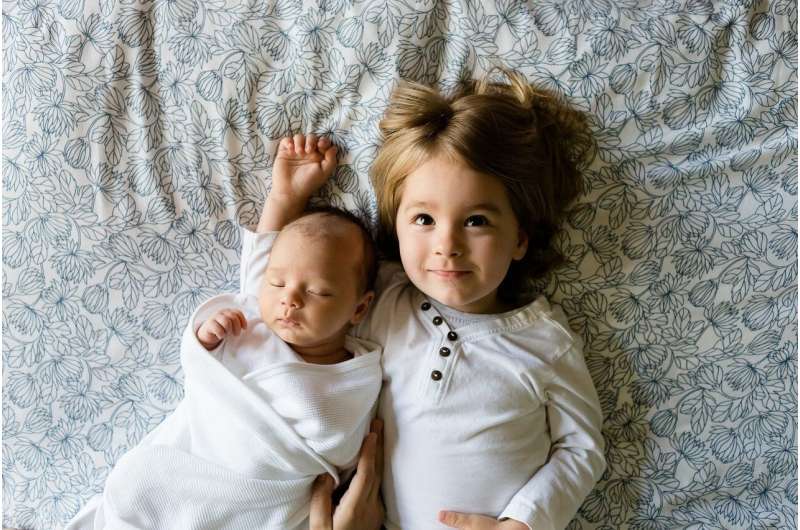Credit: Pixabay/CC0 Public Domain
If I've tested positive for COVID-19, what will happen when I give birth?
It's common for expectant parents to have questions about making sure their newborn is healthy during and after delivery in the hospital. But what if you are delivering a baby soon and have tested positive for SARS-CoV-2, the virus that causes COVID-19?
There is still a lot to learn about COVID-19. Let's look at what you can expect when it is time to have your baby and find out what steps can help keep everyone safe.
So far, very few babies born to mothers with COVID-19 test positive for the virus in the first few days. We do not know how likely it is for the baby to get sick after going home from the hospital. Newborns and young infants who do catch the virus can become sick enough to need to be hospitalized, but most often they recover.
Based on the latest evidence, the American Academy of Pediatrics supports allowing women with COVID-19 to have their partner with them while they labor and give birth. However, each hospital has its own rules on this issue, so check with the one where you plan to have your baby.
You should wear a face mask while giving birth to help stop the virus from spreading to your baby or others during delivery. Your non-infected partner should also wear a face covering and follow all hospital or birth center safety precautions.
Your infant will receive all the usual care in the moments right after birth. Unless you are too sick, you should be able to hold your baby against your skin. Your baby will be bathed after delivery to remove any virus from the skin.
When steps are taken to prevent the virus from spreading, mothers and babies can safely stay together in the same room. It is also safe and good for you to breastfeed your baby. Wear a cloth face covering and wash your hands or use hand sanitizer with at least 60% alcohol whenever you directly care for your baby. Partners and other family members should use cloth face coverings and wash their hands often when holding or touching the baby, even if they do not have COVID-19.
If your newborn stays in your room, be sure to keep a safe distance when you are not directly caring for your baby. The hospital may provide a clear plastic enclosed crib that helps protect your baby from germs in the hospital room. It also helps you keep a safe distance while still letting you see your baby.
If your symptoms are severe, it may not be possible for you to take care of your infant and yourself safely. In this case, it may be best to stay in a separate room from your baby or have a non-infected caregiver take care of your baby in your room.
Once you are home, wash your hands with soap and water for at least 20 seconds before holding or touching your baby. Use hand sanitizer with at least 60% alcohol if soap and water are not available. Along with good hand washing, keep using a cloth face covering until:
- You have been without a fever for 24 hours without fever-reducing medicines and it has been at least 10 days since your symptoms first appeared.
- At least 10 days have passed since the positive test if you never had symptoms.
- Symptoms have improved and at least 10 days have passed since you first felt sick.
- Ten days have passed from a positive test when you came in to give birth.
As you welcome your new little one home during the pandemic, don't forget to take care of yourself. Adjusting to life with a newborn can be hard in normal times. With a new baby at home during COVID-19, it is important to get help when you need it.
We continue to learn more about how COVID-19 affects babies before, during and after delivery. If you have any questions about your newborn's health during COVID-19, call your pediatrician.
(c) 2021 Tribune Content Agency, LLC.
























